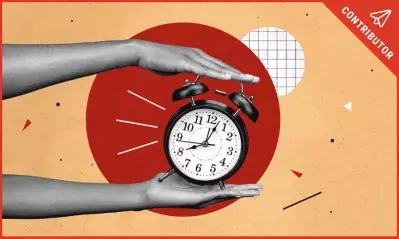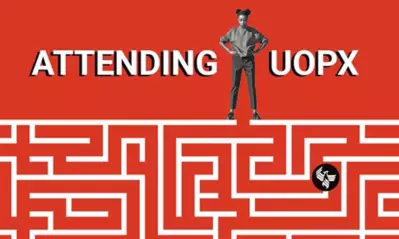You graduated and need a job. Now what?

It’s the reason many of us go to college in the first place: to prepare for a career path. But when it comes to finding an actual job, where do you start?
Help wanted: career guidance
"I am often told by my clients that I have exceeded their expectations," says career advisor Alice Rush, MA, CCC. "We are highly pragmatic as a team; we focus in on what the client wants to accomplish."
Rush has been a career advisor at University of Phoenix for three years, and she has been helping students navigate paths to professional success for 30 years. So, when it comes to preparing students for their dream position — or just figuring out what that dream position actually is — she has a few suggestions.
The difference between "job placement" and "career support"
It’s easy to see why the idea of job placement is so attractive. Who doesn’t love a guarantee? Except, of course, when that guarantee is in the wrong role, or it bypasses the mastery of certain mission-critical skills, like writing a resumé or learning how to interview.
Career support, on the other hand, starts from scratch. At least it does at University of Phoenix, where student or alum’s values, goals, personality, work history and education are discussed. These are followed up with career assessments, interactions with people who currently work in a targeted field and the development of a shortlist of potential employers.
"Next, we help with resumé-building resources, interview prep and practice, job-search best practices and advising on networking strategies and tactics, like how to build a LinkedIn profile and brand presence," Rush explains.
University of Phoenix student Danishia Whatley can attest to the efficacy of this approach. Whatley has worked in healthcare for 12 years in a variety of roles, so she is no stranger to the vicissitudes of the job market. Yet even she was surprised by what she could learn by working with her University of Phoenix career advisor.
"It’s so much better," she says of her revamped resumé. "After I saw the difference, I was like, ‘Oooooh! That’s why I didn’t get that job. Because that resumé was trash.’"
You get out of it what you put into it
Whatley, who is wrapping up her online health administration degree, laughs now about what she didn’t know then. She has learned through experience not to be distracted by mistakes or false starts. Indeed, as a mother, a student and a full-time employee, she can’t afford to be.
So, while she is conversational and funny, the kind of person you could easily spend an afternoon talking with, she is also serious and focused. Her goal — to move out of patient care and into an administrative role — is never far from her mind.
This attitude, Rush says, is key to success. "Working with a career advisor is not a guarantee you will land a job," she explains. "It requires work, drive and motivation on the part of the student or alum. They are responsible to follow through and to be brave — to try things they may have never done before."
It’s all about who you know
For many, one new, potentially intimidating thing is networking. "If people only apply for advertised jobs on the internet, they can be chronically unemployed for years," Rush says. "It’s important to understand that networking is a best practice for finding a job sooner than later."
At University of Phoenix, that’s not as scary as it sounds. "We have over a million alumni and more than 75,000 students nationwide. That’s a powerful network that you could connect with," Rush says.
It takes a village to raise a graduate
One of the biggest advantages career advisors offer is continual, multifaceted support. In Whatley’s case, that went well beyond resumé coaching. Her advisor has been a veritable cheerleader, guide and expert, all in one.
"I had a situation where I was like, ‘I’m stressed.’" Whatley recalls. She had been taking two courses at University of Phoenix and one at an outside institution, and when she got a bad grade in the latter, she was ready to quit and retake the class.
Whatley’s career advisor had other plans. She encouraged Whatley to see what options were available, and it turned out Whatley could (and successfully did) retake the exam. She passed the class and remained on track to graduate in September 2021.
When asked who her advisor is, Whatley sings her name in appreciation. Her advisor, she says, has offered interview support. She has guided Whatley to new opportunities, and she has reframed Whatley’s understanding of what skills and tools Whatley can bring to a position.
"Not only do I have an academic team," Whatley enthuses, "but I have a career-services team. And I have them for a lifetime!"
The collaboration between student and career advisor is as successful as both parties want it to be. But in creating what Rush calls a "customized approach" to career support, students are uniquely poised to attain their career goals.
For Whatley, this offers both practical benefits (assistance with career planning) and emotional ones. "They are who they think they are," Whatley says of her teachers and her career advisor at University of Phoenix. "They walk with you through the entire process."
If you need help preparing for your career, University of Phoenix has tools and resources that can help. Visit the Career Services page to learn more.


